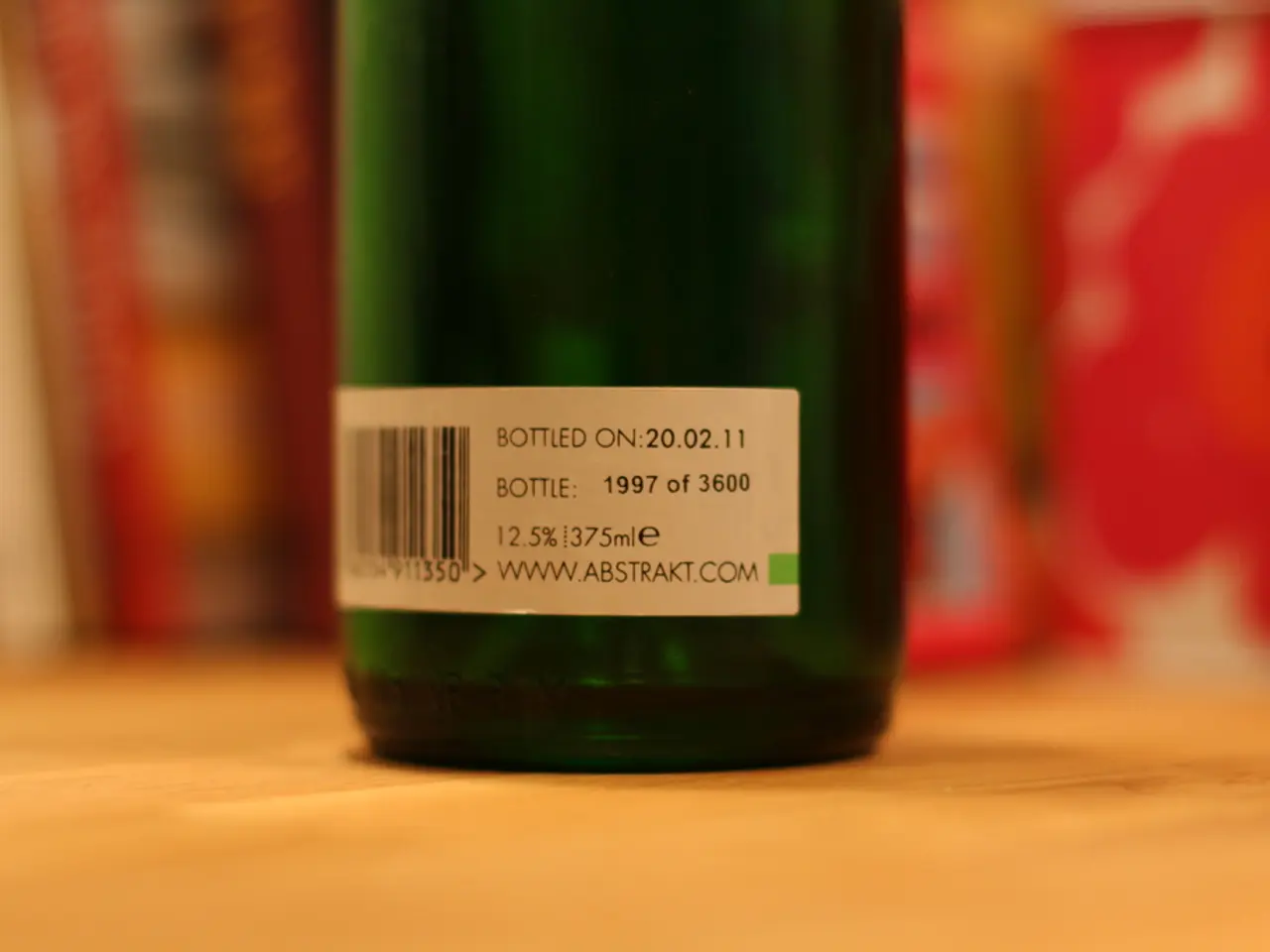Food Favorites and Their Hidden Impact on Skin Health
In the quest for clear, radiant, and youthful-looking skin, it's not just about skincare products and routines. A balanced diet rich in essential nutrients plays a crucial role in promoting healthy skin. Here are some foods and dietary habits that can either support or hinder your skin health.
Foods to Avoid
Dairy products, rich in natural hormones such as insulin-like growth factor, can stimulate oil glands, clog pores, and promote acne and inflammation. This inflammation accelerates skin aging and impairs healing, leading to persistent irritation and redness [1][2][3].
Processed meats, high in sodium, preservatives like nitrates/nitrites, and saturated fats, cause inflammation, water retention (puffiness), skin redness, and accelerated aging by damaging collagen and elastin [1][3][5].
Fast food and processed foods, typically rich in refined carbohydrates, sugar, unhealthy fats, trans fats, and chemicals, promote blood sugar spikes and inflammation, which worsen acne, dull skin, and cause premature wrinkles [2][3][5].
Sugary snacks and high-glycemic foods break down skin collagen, increase oil production, and trigger acne. High-glycemic foods exacerbate these effects and can amplify whey protein–induced acne [3][4][5].
Trans fats, such as margarines with partially hydrogenated oils, damage collagen and elastin fibers, accelerating skin aging and loss of elasticity [3].
Alcohol and sugary cocktails cause dehydration, contributing to dull and tired-looking skin, especially during hot weather [3].
Healthier Alternatives
To counteract these negative effects, focus on foods rich in antioxidants, such as berries, green tea, and dark chocolate, which help fight free radicals that cause premature aging [2][5]. Protein-rich foods like eggs, legumes, lean meats, fish, and bone broth support skin repair and collagen production for firmness and elasticity [2][5].
Omega-3 fatty acids, found in salmon and walnuts, moisturize skin and reduce inflammation [5]. Essential minerals like zinc and selenium, available from meats, seeds, nuts, and whole grains, promote skin repair and regeneration [5].
Whole, unprocessed foods, emphasizing nutrient-dense, minimally processed foods that provide vitamins, amino acids, and minerals essential for skin health with minimal inflammation risk, are key [2][5]. Hydrating foods like cucumber slices and water-rich fruits and vegetables help maintain skin hydration and reduce puffiness, especially in hot weather [3].
Special Considerations
Everyone's skin is unique, and what works for one person may not work for another. If you have specific concerns or conditions, consult with a healthcare professional or registered dietitian for personalized advice.
Artificial sweeteners such as aspartame and sucralose have been linked to skin issues such as hives, rashes, and itching, and can disrupt the balance of gut bacteria, contributing to inflammation in the body and worsening skin conditions [6]. To minimize the intake of artificial sweeteners, opt for natural sweeteners such as stevia or monk fruit extract and be mindful of reading food labels to choose products that are free from artificial sweeteners.
Gluten, found in wheat, barley, and rye, can trigger skin issues for individuals with gluten sensitivity or celiac disease. If you suspect that gluten may be affecting your skin health, consider eliminating gluten from your diet for a period of time to see if symptoms improve. Consult with a healthcare professional or registered dietitian for guidance on how to properly follow a gluten-free diet.
Caffeine is a diuretic and can lead to dehydration, resulting in dryness, puffiness, and dark circles under the eyes. To minimize the dehydrating effects of caffeine on skin, drink plenty of water throughout the day and consider reducing caffeine intake or opting for decaffeinated versions of favorite beverages.
Lastly, remember that moderation is key when it comes to alcohol. Alcohol dilates blood vessels in the skin, causing redness and flushing, which can lead to broken capillaries and a blotchy complexion over time [7]. Opt for hydrating beverages such as water or herbal tea to maintain skin health.
In summary, avoiding dairy, processed meats, sugary and fast foods, and trans fats while focusing on antioxidant-rich, protein- and omega-3–rich whole foods supports clearer, more youthful skin and minimizes inflammation and skin damage [1][2][3][5]. By making mindful dietary choices and consulting with healthcare professionals, you can support your individual skin health needs and achieve the glowing complexion you desire.
[1] https://www.ncbi.nlm.nih.gov/pmc/articles/PMC6203250/ [2] https://www.ncbi.nlm.nih.gov/pmc/articles/PMC6050341/ [3] https://www.ncbi.nlm.nih.gov/pmc/articles/PMC5896814/ [4] https://www.ncbi.nlm.nih.gov/pmc/articles/PMC6366953/ [5] https://www.ncbi.nlm.nih.gov/pmc/articles/PMC6114095/ [6] https://www.ncbi.nlm.nih.gov/pmc/articles/PMC5584934/ [7] https://www.ncbi.nlm.nih.gov/pmc/articles/PMC5713995/
- Switching to a healthy-diets rich in essential nutrients, such as antioxidants from berries, green tea, and dark chocolate, can help combat premature aging and support skin repair and collagen production.
- Consuming supplements like omega-3 fatty acids found in salmon and walnuts, and minerals like zinc and selenium from sources like meats, seeds, nuts, and whole grains, can promote skin repair and regeneration.
- Maintaining a nutrition plan that emphasizes whole, unprocessed foods like cucumber slices, water-rich fruits, and vegetables, and minimizing intake of artificial sweeteners, trans fats, and caffeine, can help keep the skin hydrated, reduce inflammation, and contribute to a healthier complexion.




